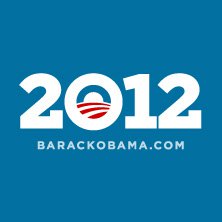
Thousands of Rhode Islanders went to work today (or looked for work) instead of to the polls. Maybe they were going to vote, but then decided they just wanted to go home. Or maybe they didn’t like the candidates. Or maybe they just didn’t know where their local polling place was. They’ll all be counted as people who didn’t vote.
I didn’t go to my local polling place either, even though it’s a short walk (or even shorter bike ride) from where I live. It wasn’t that I don’t think that the delegate candidates don’t deserve to go Charlotte (or Tampa, if that’s your preference). It’s that I don’t want who they’re voting for. Barack Obama, Mitt Romney, Ron Paul, Newt Gingrich; not matter who a delegate is pledged to, what’s the point?
France held its first round of presidential elections on the weekended. U.S. media was keen to tell us how the process works. And buried in this Slate article about Socialist candidate Francois Hollande’s use of an Obama-style get-out-the-vote operation was the idea that the 30% of people who didn’t vote are termed “les abstentionnistes” which I think translates into “the abstainers.” The article makes the point that in France, not voting is constructed as a conscious choice, versus the American idea that not voting is a sign of laziness or inability or apathy.
So I abstained. I made a conscious choice. And, believe it or not, plenty of people made this choice too. When we think about why people don’t turn out, there are certainly plenty of reforms we can make to lower the bar to participation (a week long celebratory holiday for voting was suggested by a teacher once and is my favorite idea). But we also need to focus on why should I turn out for Candidate X. And that’s on Candidate X.
In this case, it’s on President Obama. I voted for President Obama twice, once against Hillary Clinton and once again against John McCain. In 2008, there were a lot of reasons to go to the polls and vote. Sarah Palin as vice president, the traditional idea of Democrats as the solution to economic depressions, the worst stock market crash since 1929, etc. September 2008 had unleashed the idea that Democrats would attempt a second New Deal in many people my age. We had hope, and we voted for change. And we really thought things were going to change.

The President betrayed that hope, and he didn’t bring change. He expanded the scope of the War on Terror to include American citizens, doubled down on the War on Drugs, continues to issue signing statements, failed to push for a strong enough stimulus, fails to forcefully push for LGBT rights; and surrounds himself with Wall Street hacks largely responsible for the crisis (Larry Summers isn’t “change you can believe in”); Mr. Obama has proved over and over that he is a Third Way Democrat; Bill Clinton without the panache or economic rebound. Is it any wonder large portions of Mr. Obama’s voters stayed home in 2010? He hadn’t given them anything to believe in since inauguration day. And his party got shellacked for it.
Occupy Wall Street contains plenty of youth who are angry with the President. The ability of a largely disenchanted and unemployed youth to turn the nation conversation on economics away from the national debt and towards economic inequality proves just how important they are to politics. Even Republicans picked up on this.
OWS’ major flaw is their antipathy towards electoral politics, but understandable, given that their faith in Barack Obama was rewarded with the half-measures and inept political maneuvering that define his presidency. The healthcare plan enacted, while having some great upsides, is emblematic of this. One of its defenses has been “but the Heritage Foundation originated it!” This neither eases conservative anger nor does it rally progressives and liberals.
President Obama should be a lesson for all Democrats and anyone who uses progressives as part of their electoral coalition. David Cicilline is facing the toughest election of his political career. Turning to a populist, energized campaign based on strong, deliverable ideological issues would move the campaign beyond Providence’s finances. It would also pick up dedicated support from inventing young people. Allowing his campaign to become a referendum on the Democratic Party makes his general election prospects dim, as well as his primary ones. Both Mr. Cicilline and challenger Anthony Gemma are going to use the following phrases: “grassroots support” “protect Social Security” “failed Republican policies”. The only thing that will distinguish them are their stances on abortion, unless Mr. Gemma flips.
Governor Lincoln Chafee was largely elected on a progressive coalition that saw Frank Caprio and John Robataille as symptomatic of the Republicrat-Democan system (for more of that, see our editor Bob Plain’s reporting on ALEC). Unfortunately, he’s largely fallen into that dynamic, and has essentially abandoned his progressive followers. If he runs in a three-way race again in 2014 (assuming he doesn’t change parties once again), energizing those progressives will be important.
So, given that candidates are well-versed in not delivering anything, is it any wonder so many people abstained rather than vote for a delegate to go “aye” for Barack Obama or Mitt Romney?

